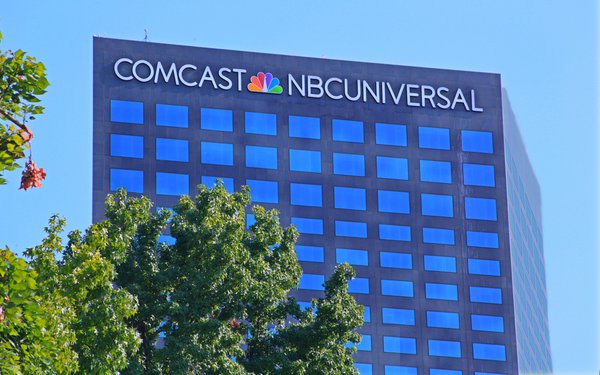Judge May Reinstate Video Privacy Claims Against NBC
- by Wendy Davis @wendyndavis, October 21, 2024

Last week, a federal appellate court revived a class-action complaint against the National Basketball Association, which was accused of violating a federal privacy law by sharing web users' data with Meta Platforms.
That ruling, issued by the 2nd Circuit Court of Appeals, could result in courtroom defeats for numerous other businesses facing lawsuits over their use of analytics tools that share information with Meta, Google and other tech companies.
Already, a federal judge in New York has suggested that 2nd Circuit's ruling could require him to reverse an earlier decision to throw out a class-action privacy complaint against NBC Universal.
advertisement
advertisement
The circuit court ruling “clearly calls the decision to dismiss this case... into question,” U.S. District Court Judge Paul Englemayer said Friday in an order directing lawyers for NBC and the plaintiffs to confer on a procedural mechanism that will enable him to reconsider his earlier ruling.
The case against NBC dates to 2022, when Missouri resident Sherhonda Golden claimed that NBC violated the federal video privacy law her video-viewing data with Facebook, via the Meta Pixel analytics tool.
The 1988 Video Privacy Protection Act (VPPA), which was passed after a Maryland store disclosed the video rental history of Supreme Court nominee Robert Bork to a newspaper, prohibits video rental companies from disclosing personally identifiable information about consumers' viewing history without their permission. The statute's definition of “consumer” includes subscribers as well as renters and purchasers.
NBC argued the matter should be dismissed, arguing that Golden wasn't a “subscriber” to Today.com.
Golden countered that she had subscribed to a Today.com email newsletter, which included links to online videos.
In late September, Engelmayer accepted NBC's argument and dismissed the case, ruling that Golden shouldn't be considered a subscriber. He said in a written opinion that there were no allegations that the Today.com email newsletter allowed Golden to view “exclusive video content otherwise unavailable to a member of the general public who is not a newsletter subscriber.”
After Engelmayer issued that decision, the 2nd Circuit Court of Appeals ruled in a separate dispute that “subscriber” should be interpreted broadly.
“The VPPA is no dinosaur statute,” Circuit Judge Beth Robinson wrote in an opinion joined by Judges Reena Raggi and Eunice Lee.
“Congress deployed broad language in defining the term 'consumer,' showing it did not intend for the VPPA to gather dust next to our VHS tapes,” the judges added. “Our modern means of consuming content may be different, but the VPPA’s privacy protections remain as robust today as they were in 1988.”
That ruling came in a lawsuit by California resident Michael Salazar, who alleged that the National Basketball Association violated the VPPA by sharing his personally identifiable viewing history at NBA.com with Facebook via the Meta Pixel.
Salazar argued he was a subscriber NBA.com because he had signed up for an online NBA newsletter that offered links to videos on NBA.com, and the National Basketball Association countered that registering for an email newsletter wasn't the same as subscribing to a video service.
A trial judge dismissed Salazar's case, but the 2nd Circuit reinstated his claims, ruling that his allegations, if proven true, could establish that provided “valuable personal information in exchange for access to the online newsletter.”


